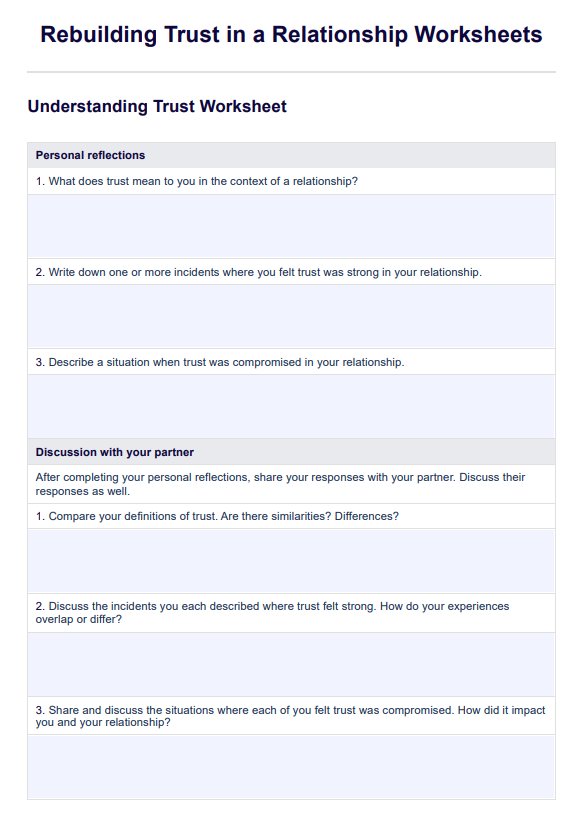The 7 steps to rebuild trust include open communication, expressing remorse, taking accountability, following through with promises, setting boundaries, practicing patience, and seeking professional help. These steps emphasize honesty, consistent actions, and mutual understanding to heal trust and foster a healthier relationship.

Rebuilding Trust in a Relationship Worksheets PDF
Help clients rebuild trust in their relationships through our template worksheet collection. Access our free worksheet template today.
Rebuilding Trust in a Relationship Worksheets PDF Template
Commonly asked questions
Fixing betrayal requires acknowledging the harm caused and taking responsibility for the actions that broke trust. Honest communication plays a crucial role, as it allows both parties to express their emotions and set boundaries. Seeking professional help, such as couples therapy, can also guide the healing process effectively.
When addressing someone who has lost trust in you, it's important to apologize sincerely and acknowledge their feelings without excuses. Express your commitment to repairing trust and follow through with actions that reflect accountability and consistency. Repairing trust requires a conscious decision to rebuild the relationship with integrity and patience.
EHR and practice management software
Get started for free
*No credit card required
Free
$0/usd
Unlimited clients
Telehealth
1GB of storage
Client portal text
Automated billing and online payments











